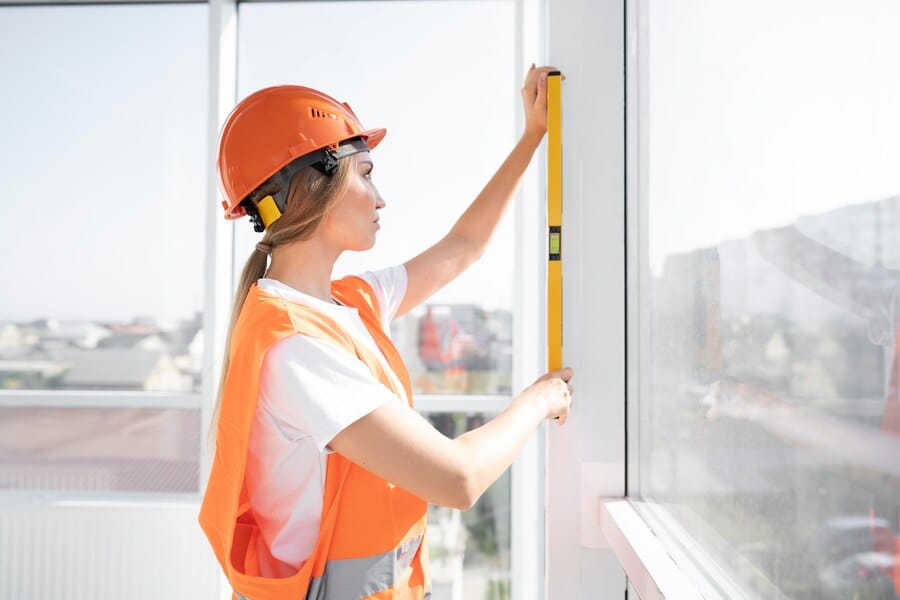How Window Replacement Can Drastically Improve Your Indoor Air Quality?

When we think about home improvements, window replacement often ranks high for its energy-saving benefits and aesthetic appeal. However, there is another critical aspect to consider: how window replacement affects indoor air quality (IAQ). Whether you are looking to reduce allergens, improve ventilation, or enhance overall health, window replacements can play a pivotal role. In this article, we’ll explore the key ways in which upgrading your windows can influence the air you breathe inside your home.
1. Enhanced Ventilation and Airflow
One of the primary functions of windows is to allow for natural ventilation. Older windows can have faulty seals, warping, or other issues that impede proper airflow, trapping stale air indoors. Replacing these outdated windows with modern, energy-efficient designs can significantly improve your home’s ventilation. This increased airflow helps dilute indoor pollutants such as dust, pet dander, and volatile organic compounds (VOCs) emitted from household products.
How it Works:
Newer windows come with features like adjustable sashes, which allow you to control the amount of outdoor air that flows into the house. Double-hung windows, for example, allow you to open both the top and bottom sashes for a balanced airflow, preventing the build-up of harmful contaminants.
2. Reduction of Indoor Pollutants
As homes become more energy-efficient, they tend to be sealed tighter, leading to a buildup of pollutants indoors. Harmful substances such as mold spores, chemicals from cleaning products, and VOCs can accumulate in the air. If your old windows have leaks or moisture problems, mold and mildew can thrive in those areas, further degrading IAQ.
New windows, especially those made with composite or vinyl materials, are less prone to warping and leaking. This can minimize mold growth and reduce the presence of allergens like pollen and dust mites. Plus, modern window materials are more resistant to VOC emissions, making your indoor air cleaner.
3. Improved Insulation and Temperature Regulation
Temperature fluctuations can impact indoor air quality. Windows that aren’t properly sealed can let in drafts, making your heating and cooling systems work harder, which in turn kicks up more dust and airborne particles. These airborne contaminants can exacerbate respiratory issues like asthma or allergies.
Energy-efficient windows offer superior insulation, maintaining a stable indoor temperature and reducing the need for HVAC systems to operate at full capacity. This reduces the circulation of dust and other particles, keeping the air inside your home cleaner and more comfortable.
Low-E Glass: A Game Changer
Low-emissivity (Low-E) glass is an innovative technology used in many modern windows. This type of glass has a thin coating that reflects infrared heat, keeping your home warm in the winter and cool in the summer. It also blocks harmful UV rays, which can degrade indoor air quality over time by affecting materials like carpet and furniture that emit pollutants when exposed to sunlight.
4. Minimized Condensation and Humidity Control
Excess humidity in your home can lead to condensation, which is a breeding ground for mold and mildew. Poorly insulated or damaged windows often experience significant condensation buildup. This not only impacts the structural integrity of your home but also introduces health risks from mold spores that circulate in the air.
New, double or triple-pane windows come with advanced insulation properties that help control moisture levels and prevent excessive condensation. By replacing older windows, you are reducing the chance of mold growth and protecting the IAQ in your home.
5. Filtration and Air Purification Benefits
Some modern window systems are equipped with built-in air filtration features, making them a solid choice for homeowners looking to enhance IAQ further. These filters can capture dust, allergens, and even certain pollutants, ensuring that the air entering your home is cleaner and safer to breathe.
Furthermore, you can pair new windows with external accessories like air purifiers and window treatments that promote better IAQ. For instance, air-purifying window treatments can remove pollutants, while certain smart windows are designed to react to air quality changes by opening or closing to adjust ventilation levels.
6. Noise Reduction and Its Health Benefits

It may seem unrelated at first, but excessive noise pollution can negatively affect your overall well-being. Old, single-pane windows tend to let in a lot of outside noise, which can interfere with your sleep, concentration, and stress levels. Noise pollution has been linked to higher stress hormones, which can exacerbate respiratory conditions.
Installing double or triple-pane windows can reduce noise levels considerably, creating a quieter, more peaceful indoor environment. When you're able to sleep better and relax, your immune system is stronger, and you are less susceptible to respiratory illnesses.
7. Eco-Friendly Window Materials and IAQ
Many homeowners are opting for eco-friendly, sustainable window materials, which can have a positive effect on IAQ. Materials like recycled vinyl, fiberglass, or wood with low VOC emissions ensure that fewer harmful chemicals are released into the air over time. Choosing green-certified windows can make your home more environmentally friendly while improving the air quality indoors.
Conclusion
Window replacement isn’t just about energy savings and curb appeal; it plays a crucial role in maintaining healthy indoor air quality. From enhancing ventilation to reducing allergens and controlling moisture, modern windows can create a cleaner, healthier living environment. When selecting your new windows, consider energy-efficient models with features like Low-E glass, multi-pane insulation, and materials that minimize VOC emissions.
With the right windows, you’re improving your home’s aesthetic and energy efficiency and also safeguarding the health and well-being of your family. So, the next time you’re planning a home improvement project, remember that replacing your windows can have a far-reaching impact on the air you breathe.



